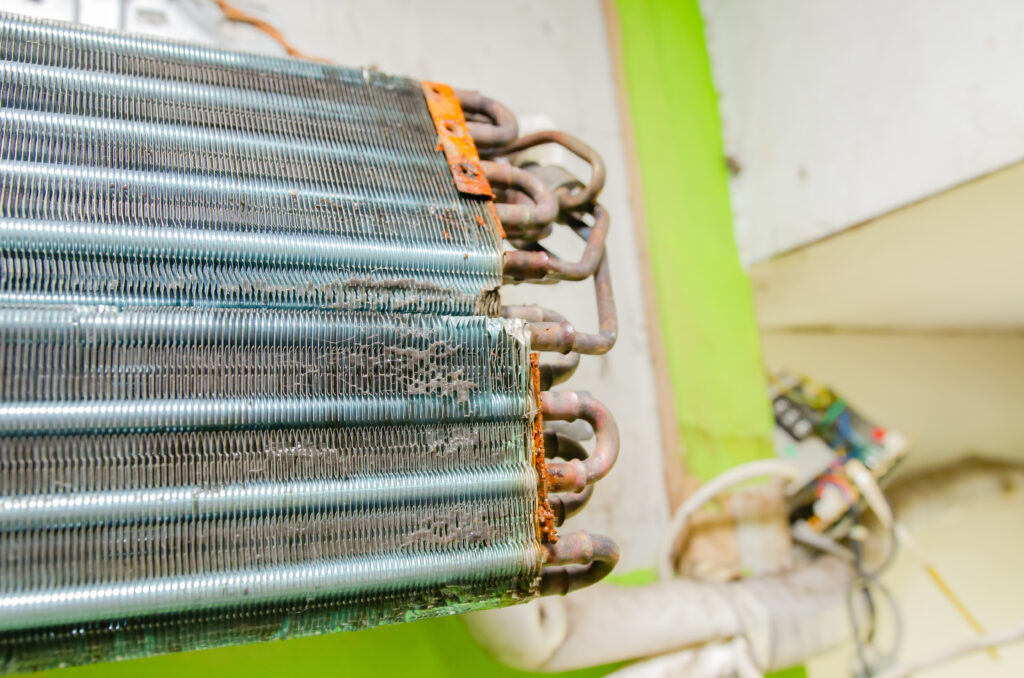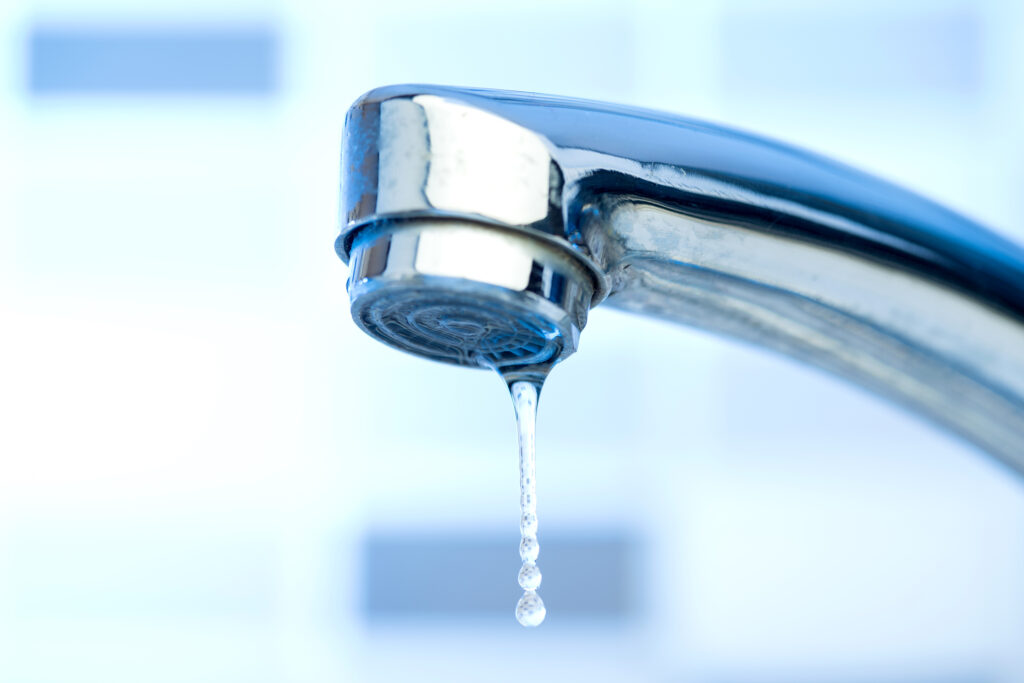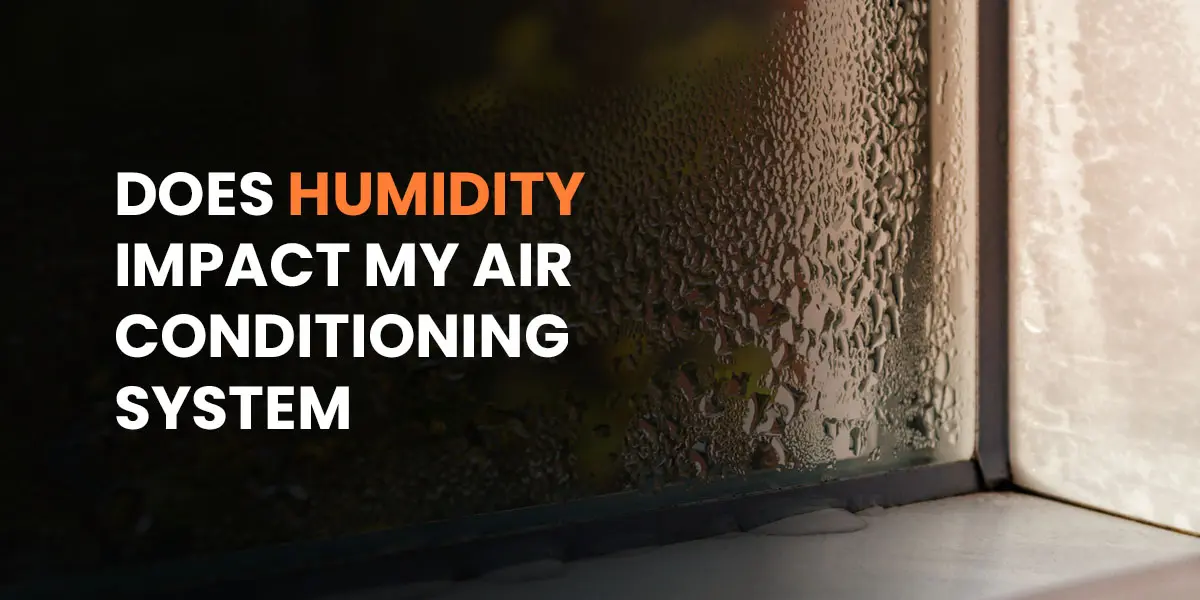
Humidity significantly affects air conditioning and heating systems. Florida’s hot and humid climate requires homeowners to reduce indoor humidity levels for optimal AC system efficiency. Homeowners may also need to increase humidity when cool winter air decreases it. Overall, maintaining proper humidity levels increases comfort, reduces energy costs and helps heating and cooling systems last longer.
Does Humidity Impact an AC System?
Controlling a home’s indoor humidity levels can significantly improve comfort, efficiency, and a system’s lifespan. Preventing high humidity is crucial when cooling a home, and preventing low humidity is essential when heating a home.
Moisture warms the air, increasing a room’s cooling needs and decreasing an air conditioner’s efficiency. High moisture levels can hinder an air conditioner’s capabilities, while low humidity can hinder a system’s heating capabilities. So, yes, humidity does cause your home’s air conditioner to work harder.
How Does Humidity Affect Your AC’s Performance?
Understanding how humidity affects air conditioning systems can help you improve your system for greater efficiency and comfort. Humidity affects air conditioners in the following ways:
- Uneven and ineffective cooling: Air conditioners struggle to provide cool air when humidity levels are high. Homes with high humidity levels may feel stuffy and warm, making it difficult to find relief from hot outdoor temperatures.
- Increased energy costs: Uneven cooling also increases energy costs. As high humidity forces AC systems to work harder and unevenly cool homes, they consume more energy. An overworked AC system can significantly increase summer energy bills, but proper humidity levels allow an AC system to operate efficiently.
- Wear and tear: A strained, overworked AC system also sustains wear and tear. As an AC system works hard to compensate for sticky, damp air, it gradually wears out and may not last as long as its predicted lifespan. Regular maintenance is important for any AC system, but a system with excessive wear and tear needs additional maintenance and may require more repairs and quicker replacements than other systems.
- Mildew: High humidity can increase moisture inside air ducts. Increased moisture facilitates algae or mildew growth, allowing particles to circulate throughout a home. If mildew spores circulate throughout your home, you may experience health effects such as skin irritation, wheezing, congestion, or eye irritation.
How Does Humidity Affect Heating Capabilities?
While Florida usually brings hot weather, cool days can still occur. Cooler winter temperatures can decrease humidity levels, making a home feel cooler than it is. This means you may feel an indoor chill even if your heater is set at a warm temperature, and it can cause your system to operate inefficiently.
Signs of High Indoor Humidity
Your home may have high humidity levels if you notice the following signs:
- Muggy air: The main sign of high humidity levels is muggy air. The air inside your home may feel sticky, and you may feel warm even when your AC system is set at a low, cold setting.
- Accumulating moisture: Humidity is vaporized water, and water molecules can accumulate on windows. If you notice foggy windows, your home has increased humidity levels.
- Visible mildew: Discolored walls and rotting wood are signs of mildew and may be due to increased humidity.
- Odors: Musty odors are another sign of mildew and indicate high humidity levels due to increased dampness.
- Damp and clammy skin: Excess vaporized water can also cause the skin to feel clammy. High humidity prevents the air from absorbing moisture or sweat from the body, making skin feel sticky and uncomfortable.
How to Address High or Low Indoor Humidity
Proper humidity levels provide a comfortable home, reasonable energy costs, fresh air, and dry windows. High or low indoor humidity can be uncomfortable and expensive, but you can address this challenge with the following solutions:
Close Your Windows on Humid Days
Excess moisture can enter your home rapidly through windows on highly humid days. Keeping your windows and doors closed on humid days helps reduce moisture in your indoor air.
Install a Newer AC System
Modern AC system models contain dehumidifier and humidifier components to help remove excess moisture from indoor air or maintain moisture levels. If your home uses an older model, it may not include dehumidifying and humidifying components. Installing a newer, updated air conditioner can provide your system with adequate moisture-balancing capabilities for greater efficiency and comfort.
Install the Correct Size Air Conditioner
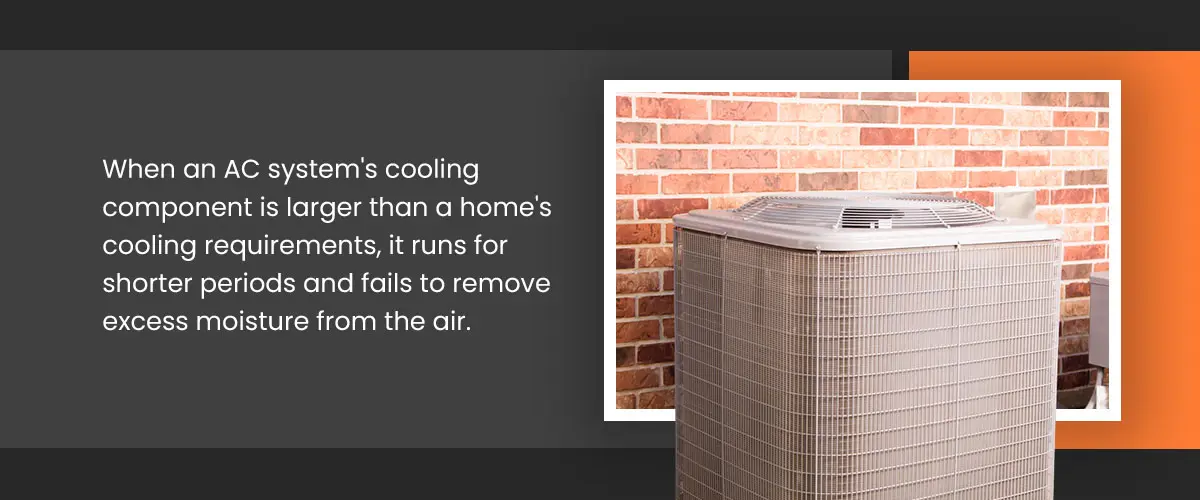
Considering an AC system’s size is also important. AC systems operate to cool and remove excess moisture from indoor air simultaneously. When an AC system’s cooling component is larger than a home’s cooling requirements, it runs for shorter periods and fails to remove excess moisture from the air.
An air conditioner must operate for a certain amount of time to remove moisture from the air effectively. When a large air conditioner releases a great deal of cool air into a smaller home, it cools rooms faster than it can effectively remove moisture from the air.
The right size air conditioner can remove vaporized moisture effectively and provide efficient cooling. The same applies to heating systems. Consult with a professional to determine the ideal size heating and cooling system for your home’s cooling needs.
Control Indoor Humidity Levels With a Dehumidifier and Humidifier
A dehumidifier can significantly help you reduce moisture levels in your home. This device pulls moisture from the air before your system forces it through your home’s air ducts. While you can install a separate dehumidifier, pairing one with your air conditioning system is ideal. An air conditioning system with a built-in dehumidifier allows you to adjust your home’s temperature and humidity levels simultaneously.
A humidifier helps add moisture to the air when levels drop too low in the winter. Installing a separate humidifier or pairing one with your heating and cooling system prevents excessively dry air.
Check Your System’s Refrigerant Charge
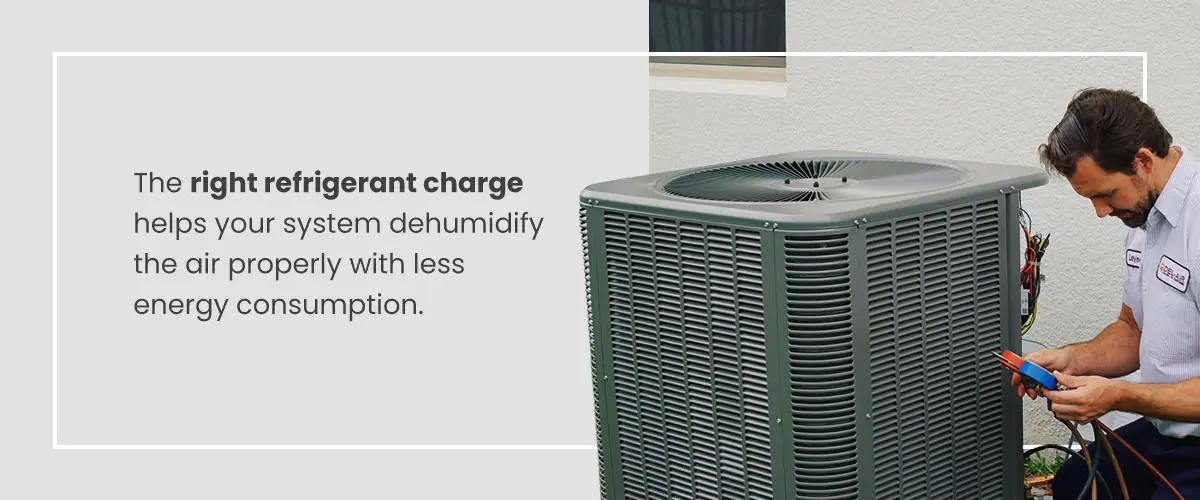
When you install a new air conditioner, checking its refrigerant charge is essential. The right refrigerant charge helps your system dehumidify the air properly with less energy consumption. Trusting a reputable company to install your AC system professionally ensures it has an adequate refrigerant charge.
Utilize Exhaust Fans
Cooking and showering can add moisture to the air inside your home. Turning your fans on helps remove this moisture from the air while using the stove or shower. However, turning the fans off after you’re finished is also important because the fans can also blow cool air out of a room.
Install a Hygrometer
A heating and cooling system with humidification and dehumidification capabilities can help you monitor your home’s humidity levels and adjust them as necessary. However, you can install a hygrometer if you have a system without humidity control components. A hygrometer can help you determine when to address high or low humidity levels.
Control Humidity Levels and Increase Comfort With Del-Air Heating and Air Conditioning Services
An older or improperly sized air conditioning system may fail to control humidity levels, leaving you with an uncomfortable home and high energy bills. Upgrading your AC system can increase comfort and reduce your monthly electric bill.
Del-Air Heating & Air Conditioning installs and services heating and cooling systems for optimal performance and efficiency. We offer the newest AC models with humidity control to help you maintain comfort while saving money.


